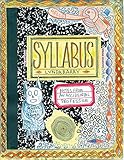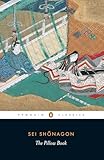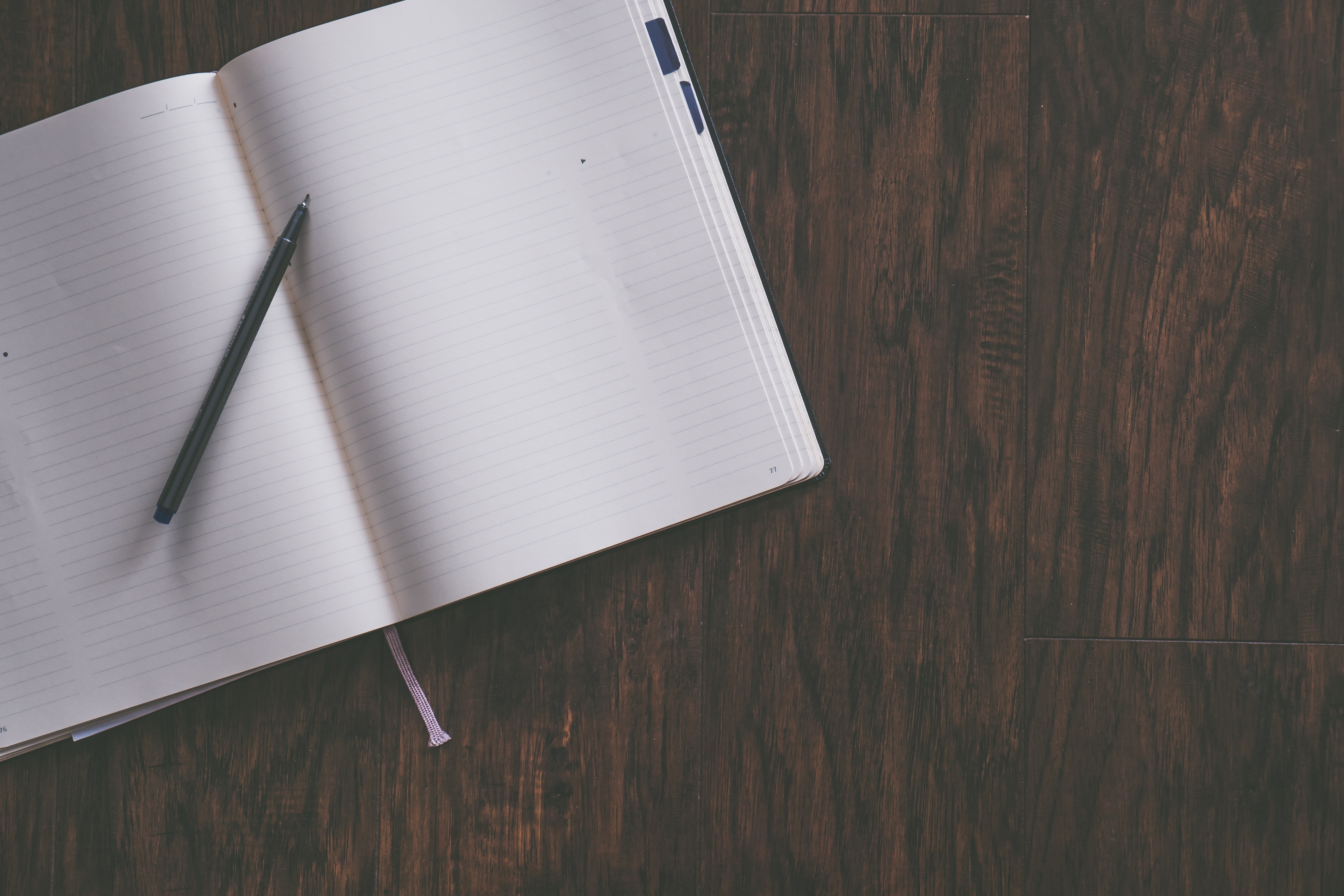“I am out with lanterns, looking for myself.”
– Emily Dickinson
The first one was the size of a piece of American cheese. It had a photo on the cover of a horse tossing its mane and a silver lock that opened with a key.
Then came a procession of cheap spiral notebooks. After that, possibly a high school graduation gift, came a hardbound book that could only be called a journal. Finally, there was a Microsoft Word file that started out strong but eventually faded from thought, as only electronic files can.
In the intervening years, I’ve tried several times to get back to journaling. I’ll bring home a notebook and then not manage to fill it. A year or two later, the process repeats: new notebook, new entries, precipitous silence, and empty pages.
What does an unfinished journal mean? I’m afraid it means poor discipline, a nonchalance in the face of lost time. But the reality is probably less dramatic. I’m busy: just getting through the day can take so much effort that doing the secretarial work of recording it can feel like a strange, self-imposed burden. Also, the emotions that made me write when I was younger—melancholy, heartsickness, wistfulness—aren’t as acute as they used to be.
And then there’s the fact that social media is already doing some of the administrative work of a journal. Facebook reminds me of my anniversaries and milestones with the dedication of a dog bringing my slippers. It’s almost too easy. My various feeds are always right there waiting for me. Together they promise that my past is a smooth, open road retraceable just by scrolling.
But the record I leave there feels ephemeral. I worry, too, that in the very act of sharing my memories with a corporation, I’m partially forfeiting my right to them. Keeping a journal—not a blog for an audience, but an actual journal—feels like a form of aesthetic and personal resistance. It feels a little bit subversive.
But before trying again and failing, I decide to ask around for advice about how to keep a journal. What I hear back is that there are countless ways to keep a journal, none necessarily better than the other. One friend sends herself occasional emails, which she later pastes into a Word file. Another uses Instagram to document her daily reading. Still another loves a good journaling app.
I start digging around online, and I keep coming up on the term “micro journaling.” As the name implies, this is a short-form style of journaling that encompasses practically anything from the one-sentence journal to the bullet journal. One form of micro-journaling that I really enjoy is a text-messaging service that sends me a daily text asking what I’m grateful for. It then catalogs my responses on a private webpage where I can scroll back through them chronologically. The focus on gratitude feels a bit too… sanctimonious for my taste. But that’s just the pretext; you can always reply with a grievance, a joke, or a description of your sandwich, an adjective that best describes your day (you get the idea).
Micro journaling is a nifty way to get into the rhythm of record keeping, but I can’t help but gravitate to blank hardbound books, free of dates and requirements. That openness is exciting, but it can also be intimidating. I order a nice old school journal, but when it arrives I find myself wondering exactly I’m supposed to write in it. How does one journal as an adult? I think of Samuel Pepys, who gave posterity a lively account of the 17th-century world of coffee houses and taverns, and of Virginia Woolf who held a mirror to the early 20th-century literary elites. Both writers—and countless other less famous journalers besides—understood that a detailed diary can be a gift to the future.
My future self will want to know what I thought of these turbulent times. But I bristle at the idea that I need to “comment.” The Internet has tangled up my inner and outer lives in ways my younger self could never have foreseen. I know for sure, though, that a journal entry isn’t the same thing as a Tweet or a Facebook post. A private notebook can be a place for Holding Forth on Topics, but it should also be a place for writing down last night’s dream or sketching an aggressively shaded palm tree while thinking about something weird that happened at work.
 I’m turning this over when I come across Lynda Barry’s Syllabus. Barry is a cartoonist, author, and teacher whose recent books are devoted to changing the way people think about their own creativity. Syllabus is based on a workshop Barry teaches called “Writing the Unthinkable.” The main course requirement is keeping a notebook—and not just any kind. Each day’s hand-written entry must contain these items: 1) a list of seven things you did, 2) a list of seven things you saw, 3) something you heard someone say, and 4) a sketch of one item from the “saw” list. Don’t even think about skipping the sketching step.
I’m turning this over when I come across Lynda Barry’s Syllabus. Barry is a cartoonist, author, and teacher whose recent books are devoted to changing the way people think about their own creativity. Syllabus is based on a workshop Barry teaches called “Writing the Unthinkable.” The main course requirement is keeping a notebook—and not just any kind. Each day’s hand-written entry must contain these items: 1) a list of seven things you did, 2) a list of seven things you saw, 3) something you heard someone say, and 4) a sketch of one item from the “saw” list. Don’t even think about skipping the sketching step.
Even before I try it, I sort of fall in love with this approach. I like its clarity, its belief in the undramatic work of record keeping. Barry explains that if you journal this way for a while you’ll start to “notice what you notice.”And, sure enough, a month in, I do notice I’m more alert to visual details and spoken conversation. I’m also increasingly comfortable sketching. Oh, and I love not having to write in complete sentences.
 One day, though, I’m reading Maggie Nelson’s The Argonauts when I come across this line: “I am no longer interested in hiding my dependencies in an effort to appear superior to those who are more visibly undone or aching.” I have complicated feelings about this book, but that observation about vulnerability feels forceful and true, and I feel the urge to write it down.
One day, though, I’m reading Maggie Nelson’s The Argonauts when I come across this line: “I am no longer interested in hiding my dependencies in an effort to appear superior to those who are more visibly undone or aching.” I have complicated feelings about this book, but that observation about vulnerability feels forceful and true, and I feel the urge to write it down.
However, there’s no provision in Barry’s method for copying down quotations. What I need, I guess, is a second notebook for recording my reading—namely, a commonplace book. The history of the commonplace journal traces back to the Renaissance, a time when readers typically read several books at once, savoring lines across volumes, rather than consuming titles one by one, as most of us do today. Commonplace books have long been a favorite resource of writers. Ralph Waldo Emerson kept commonplace journals, convinced that his best thinking happened in the company of other minds. Wallace Stevens began his own commonplace book in a fit of contrition after years of disfiguring library books with marginalia.

 But I don’t love the idea of managing two separate journals. What if I just added passages from my reading to the same journal where I keep my Barry entries? After all, there’s a long tradition of writers and artists treating the journal as a glorious catch-all. Pretty soon, my journal is an ever-growing collage. Any reading I happen to be doing makes its way into the notebook: a couple of sentences from Yiyun Li’s memoir, a juicy paragraph or two from The Pillow Book, and this simple statement about vibrant urban neighborhoods from Jane Jacobs’s The Death and Life of Great American Cities: “Blocks must be short…streets and opportunities to turn corners must be frequent.”
But I don’t love the idea of managing two separate journals. What if I just added passages from my reading to the same journal where I keep my Barry entries? After all, there’s a long tradition of writers and artists treating the journal as a glorious catch-all. Pretty soon, my journal is an ever-growing collage. Any reading I happen to be doing makes its way into the notebook: a couple of sentences from Yiyun Li’s memoir, a juicy paragraph or two from The Pillow Book, and this simple statement about vibrant urban neighborhoods from Jane Jacobs’s The Death and Life of Great American Cities: “Blocks must be short…streets and opportunities to turn corners must be frequent.”
Adding quotations frees me up to include other kinds of entries: to-do lists, ideas for projects, lists of weekly goals. I default to my Barry-style entries, but anything that wants to go in goes in.
So I have a journal now. Only, it has to be asked: What’s the point? Why do this?
One reason to journal might be the freedom to be completely honest. A notebook can be a confidant for your darkest thoughts. But, the thing is, unless you plan to destroy your journal, there’s a good chance someone will read what you’ve written and be hurt by it.
I’m more persuaded by the idea that journaling aids memory. Think of all the good ideas, conversations, and meals you’ve lost simply because you never took the trouble of writing them down. While it may be smart to let yourself forget certain painful memories, it seems like an excellent thing to remember what you love so you can go on loving it.
 Also convincing: the argument that a notebook is good artistic practice. “The habit of writing for my eye is good practice,” wrote Virginia Woolf of her own journal. “It loosens the ligaments.” Writing, then, can make one more agile, more prepared for future work. In rare cases, the journal itself is the work.
Also convincing: the argument that a notebook is good artistic practice. “The habit of writing for my eye is good practice,” wrote Virginia Woolf of her own journal. “It loosens the ligaments.” Writing, then, can make one more agile, more prepared for future work. In rare cases, the journal itself is the work.
These practical reasons for journaling motivate me, but I wonder if it’s actually a good idea to focus on what journaling does or accomplishes. It reminds me of way that “life hacking” discussions online have co-opted journaling as a productivity technique. It reminds me, too, of a something I’ve often heard, that journaling makes us more introspective. I don’t know if that’s true, but even if it is, what’s the use of feeling smug? We’re all just looking for some proof that we exist. We’re all just groping for a lever to pry open time.
Sometimes when I flip through my journal, I feel like nothing so much as a collector. I already know that I’m often less interested in life than its interpretation, its rearrangement. I delight in my most uninspired utterances, like a collector dusting a shelf of dolls.
In fact, even when it is disorderly, a journal is a celebration of order. Keeping a notebook is a little like keeping a home (is this why more women than men gravitate toward journaling?). The work is tangible yet infinite. I take less satisfaction in dealing with my apartment than my notebook, but I occupy them in similar ways: distractedly, messily, but with rare bursts of affection, even cautious love. I think I even understand the romantic logic of the hoarder: there’s stuff in every corner, and some of it could be precious.
Image Credit: Pixabay.










